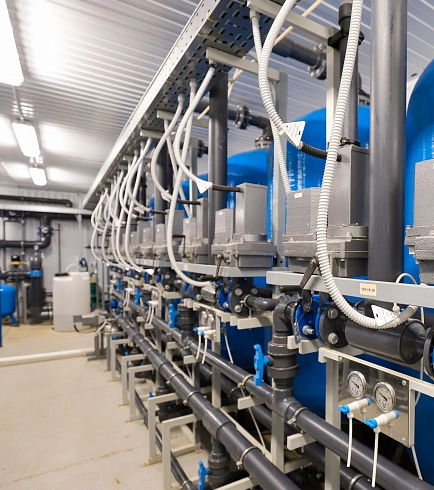Tach . 24, 2024 13:31 Back to list
Steps for Installing a Submersible Pump in a Water Well System
How to Install a Submersible Water Well Pump
Installing a submersible water well pump can be a challenging task, but with the right tools and preparation, you can successfully complete it yourself. A submersible pump is designed to be submerged in water to draw it up to the surface. This article will guide you through the process of installing a submersible water well pump.
Essential Tools and Materials
Before you start, gather all the necessary tools and materials. You will need
- Submersible water well pump - Pump control box (if required) - Electrical cable (sized appropriately for the pump) - PVC or polyethylene pipe for the discharge - Teflon tape - Wrench - Pliers - Safety gloves - Eye protection - A water level measuring tape - A cable splicing kit (if needed)
Step 1 Preparing the Site
Before installation, make sure that the well is properly drilled and clean. You should check the water level and determine the depth where the pump will be installed. Make sure that you follow all local building codes and regulations regarding well installation.
Step 2 Assembling the Pump
When you receive your submersible pump, carefully read the manufacturer’s instructions
. Assemble the pump as per the instructions, ensuring all seals are tight and secure. If the pump requires a control box, mount it near the power source, making sure it is protected from moisture and elements.Step 3 Attaching the Discharge Pipe
Once the pump is assembled, attach the discharge pipe. Use Teflon tape on the threads of the pump discharge to ensure a watertight seal. Make sure to securely tighten the fittings with a wrench but avoid over-tightening, which could cause damage.
Step 4 Waterproofing the Electrical Connections
how to install a submersible water well pump

Waterproofing the electrical connections is crucial. If you need to extend the electrical cable, use a cable splicing kit to ensure a secure connection. Make sure all splices are waterproof and insulated to prevent any electrical issues down the line.
Step 5 Lowering the Pump into the Well
With the discharge pipe and electrical connections secured, it’s time to lower the pump into the well. A helper can be invaluable at this stage. Attach a sturdy rope or chain to the pump, ensuring you have a way to pull it back up if necessary. Slowly lower the pump straight into the well, avoiding any twisting or bending that could damage the pump or the piping.
Step 6 Connecting the Pump to the Power Source
Before connecting the pump to the power source, double-check all connections for safety. Connect the pump’s electrical cable to the power supply, following the electrical code requirements for your area. Make sure the control box is turned off during this process to prevent electrical shock.
Step 7 Testing the Pump
Once everything is connected, turn on the power and test the pump. Monitor the pressure and flow rate to make sure it’s working as expected. Check for any leaks around the discharge pipe and the connections. If there are any issues, turn off the pump immediately to avoid further damage.
Step 8 Completing the Installation
After testing the pump, cover the well opening to prevent debris from entering the well. If you installed a pressure tank above ground, make sure it is properly set up and connected to your plumbing system. Finally, label the electrical connections for future reference.
Conclusion
Installing a submersible water well pump requires careful planning and attention to detail. By following these steps, you can ensure a successful installation that will provide you with a reliable water supply for years to come. Always remember to consult the manufacturer’s guidelines and adhere to local regulations when completing your installation. If at any stage you feel uncertain, consulting a professional can ensure your safety and the longevity of your water system.
-
Water Pumps: Solutions for Every Need
NewsJul.30,2025
-
Submersible Well Pumps: Reliable Water Solutions
NewsJul.30,2025
-
Stainless Steel Water Pumps: Quality and Durability
NewsJul.30,2025
-
Powerful Water Pumps: Your Solution for Efficient Water Management
NewsJul.30,2025
-
Oil vs Water Filled Submersible Pumps: Which is Better?
NewsJul.30,2025
-
Deep Well Pumps: Power and Reliability
NewsJul.30,2025
-
 Water Pumps: Solutions for Every NeedWhen it comes to handling dirty water, the dirty water pump is a must-have.Detail
Water Pumps: Solutions for Every NeedWhen it comes to handling dirty water, the dirty water pump is a must-have.Detail -
 Submersible Well Pumps: Reliable Water SolutionsWhen it comes to ensuring a reliable water supply, submersible well pumps are a top choice.Detail
Submersible Well Pumps: Reliable Water SolutionsWhen it comes to ensuring a reliable water supply, submersible well pumps are a top choice.Detail -
 Stainless Steel Water Pumps: Quality and DurabilityWhen it comes to choosing a water pump, the stainless steel water pump price is a crucial factor.Detail
Stainless Steel Water Pumps: Quality and DurabilityWhen it comes to choosing a water pump, the stainless steel water pump price is a crucial factor.Detail
